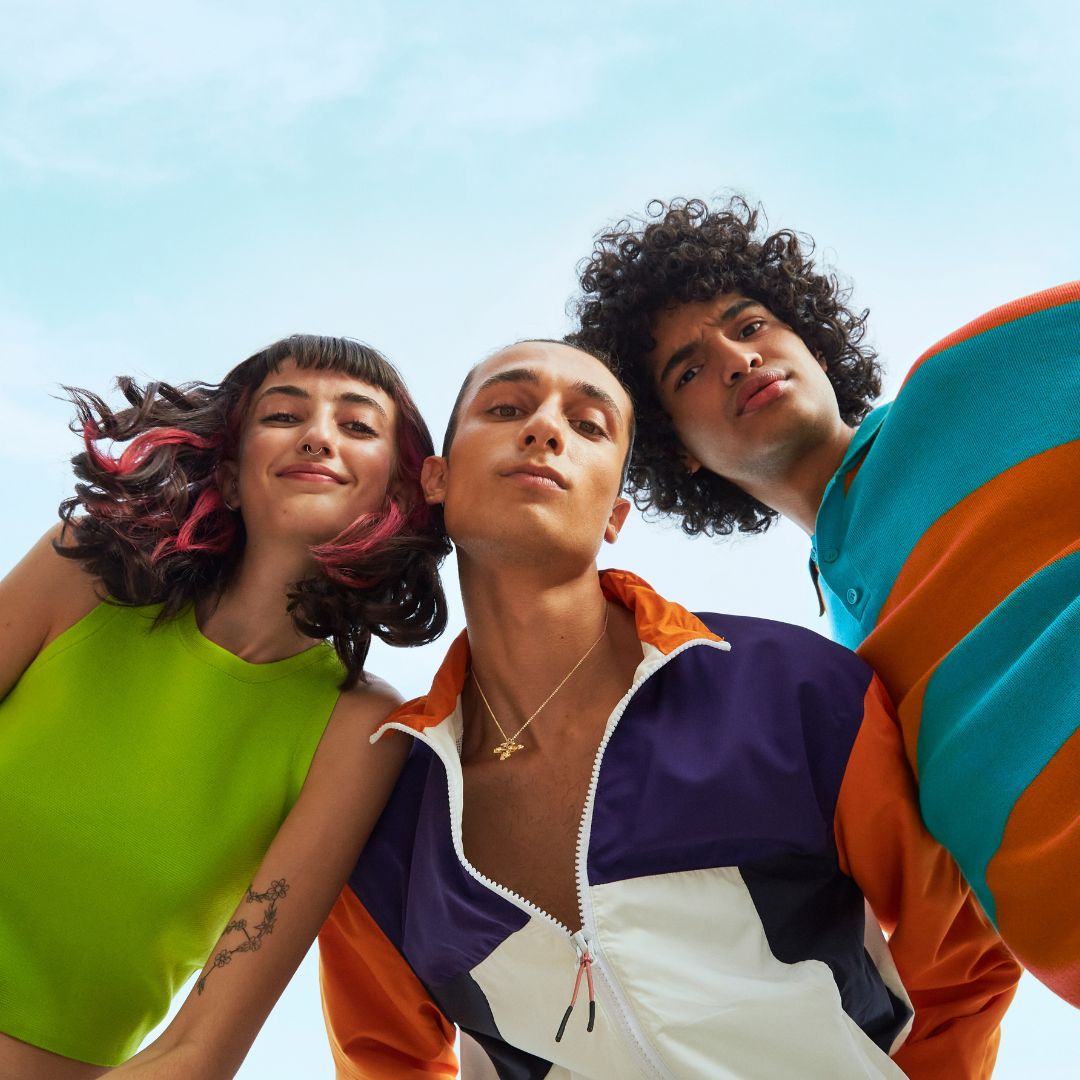As we approach 2025, the travel landscape is rapidly evolving, driven largely by the preferences and behaviours of Gen Z. This generation – characterised by their deep desire for authentic experiences, cultural immersion and social responsibility – are reshaping how we think about travel.
For them, travel is no longer just about relaxation or sightseeing – it’s about discovery, personal growth and connection with communities. With the ever-increasing influence of social media platforms like TikTok, evolving remote work trends and a demand for genuinely unique, experience-driven travel, it’s essential that hotels and hostels adapt to meet these shifting expectations.
From TikTok’s rise as a travel search engine to the increasing popularity of ‘gig tripping’ and multi-city itineraries, understanding these trends is crucial for hospitality brands looking to stay relevant in a rapidly changing market.
In this blog post, we’ll explore the key Gen Z travel trends shaping the industry for 2025 (according to this report by ibis and Globetrender) and what hotels and hostels need to know to keep up…
TIKTOK TRAILBLAZING AND AUTHENTIC SOCIAL MEDIA DISCOVERY
TikTok has rapidly become a go-to travel discovery platform for Gen Z, and by 2025, its influence will only grow stronger. With 71% of European TikTok users actively searching for travel content, and 77% being inspired to visit destinations after seeing them on TikTok, this social media platform is truly reshaping how younger travellers plan their trips. Gen Z prefers the authentic, raw, and real-time perspectives offered by TikTok creators versus more polished Instagram content. Travellers aren’t just passively watching; they are engaging with content that provides honest reviews, unfiltered glimpses of destinations, and tips on budget-friendly alternatives.
Now boasting over 1 billion users, an estimated 40% of Gen Z consumers prefer TikTok over established search engines like Google for finding new hotels, tours, or travel hacks – Tourism Australia also announced that during the summer of 2024, 60% of 22-25-year-olds have booked trips to destinations they saw on TikTok. Travel content continues to grow on TikTok, with hashtags containing “travel” seeing a 250% increase year over year in 2023. Moreover, 83% of TikTok users said that the platform sparks their interest in visiting new destinations they hadn’t previously considered.
This shift towards TikTok as a discovery engine is transforming how travellers of all ages find and engage with travel brands. It appeals not only to Gen Z but also to older audiences who have more disposable income and a greater history of travel experiences. For hotels and hostels, this trend means focusing on creating authentic, relatable content that captures the essence of your property and location. Partnering with influencers to create “real” travel experiences or encouraging guests to generate content can enhance visibility. Additionally, using TikTok’s powerful algorithms to target relevant demographics with well-edited but authentic video content will drive direct engagement and attract a wider audience.
And for those still unconvinced about the level to which TikTok actually drives bookings, the platform is set to ‘enhance the app as a discovery platform where users can immediately act on what they discover’. In other words, the capability to book hotel stays in-app is coming soon…
Ideas for your hotel or hostel’s marketing:
- Content creator collaborations: Partner with TikTok influencers who align with your brand values to showcase your property, neighbourhood, and local experiences. This amplifies your reach among their engaged audience.
- Authentic content creation: Move away from overly polished videos and focus on raw, behind-the-scenes content. Encourage your staff to share insider tips and personal stories to create themed guides, adding a layer of authenticity to your brand’s voice.
- Challenge series: Run user-generated content campaigns by challenging guests to document their experiences at your hotel or nearby attractions. Offer prizes, like a free stay or complimentary services, to incentivize participation and create a steady stream of TikTok content.
- SEO optimization: Optimise your TikTok content with location-specific hashtags and travel-related keywords like “Best hotels in [destination]” or “Hidden gems in [city].” This makes your content more discoverable to travellers actively searching for inspiration.
- TikTok ads: Utilise TikTok’s advertising options to reach a broader audience. Invest in both boosted posts and targeted brand campaigns to influence your audience’s purchase decisions directly.
- Direct booking offers: Create exclusive, limited-time offers for guests who discover your property through TikTok, encouraging direct bookings and engagement.
Here’s our ultimate guide to everything you need to know about TikTok for hotels.
MULTI-DESTINATION TRIP HOPPING
Gen Z travellers are increasingly rejecting the traditional idea of a single city vacation, opting instead for multi-destination trips that allow them to experience more in a single journey. ‘City hopping’ or ‘destination dupes’ has become a defining trend for these travellers, with a growing interest in exploring lesser-known cities like Porto, Lyon, or Bologna. These secondary cities often offer more authentic experiences and help avoid the pitfalls of overtourism, something many Gen Z travellers are acutely aware of.
Creating a multi-city itinerary also provides more of a justification for taking long-haul flights, and with remote working possible for many people, there is the option to stay away for longer and combine leisure with productivity.
Hotels and hostels can adapt in a number of ways to a variety of different guest’s needs through flexible booking options. Establishing partnerships with other accommodation providers to offer travel packages that span different cities could also be an effective way to appeal to city-hopping travellers (look at Outsite and Zoku’s innovative collaboration for inspiration!). Emphasising the uniqueness of your location can attract this adventurous generation looking for fresh and uncrowded experiences.
Ideas for your hotel or hostel’s marketing:
- Google Ads: Create search ads targeting specific keywords related to multi-city trips, like “best city-hopping destinations in Europe,” to attract travellers planning multi-stop adventures.
- Email campaigns: Send personalised emails to potential guests highlighting travel itineraries that span multiple destinations. Offer bundled booking discounts for those who choose to stay at your properties in multiple cities.
- Organic social media: Showcase real-life multi-city travel experiences on Instagram or TikTok, using features like Reels or Stories to highlight the ease of booking and exploring multiple locations.
- Multi-city trip packages: If your brand has properties in different cities, introduce multi-trip packages that allow travellers to book multiple stays in one seamless transaction.
- Social media takeovers: Invite travellers to take over your social media channels while documenting their multi-city adventures, creating authentic content that resonates with your audience.
- Digital loyalty cards: Implement a digital loyalty card system that rewards guests for staying in multiple properties. Offer incentives like free upgrades or discounts for guests who complete a ‘city-hopping’ circuit.
GIG TRIPPING & STADIUM SAFARIS
‘Gig Tripping’ is becoming a key driver of travel intent for younger travellers, with concerts, festivals, and sporting events at the centre of their itineraries. With global tours from the likes of Taylor Swift, Beyoncé and Coldplay, and major sporting events such as the World Cup and Olympics, Gen Z are building entire trips around these events. For many, attending a concert abroad or watching a sporting event in person offers a sense of community, excitement, and immersion that transcends traditional travel motivations.
Social media platforms – particularly TikTok – have fuelled this trend, creating hype and FOMO (fear of missing out) around live music events. Hotels and hostels that cater to this trend can offer tailored packages that include early check-ins, discounted rates for event-goers, and transportation to and from venues. By promoting nearby events on social media, especially TikTok, properties can attract event-goers and ensure a memorable stay by offering added-value services tied directly to the event.
Ideas for your hotel or hostel’s marketing:
- Google Ads & paid social: Target specific event-related keywords and audiences with ads promoting your hotel as the ideal accommodation for concertgoers or sports fans.
- Organic social media: Create content around gig-tripping hacks and itineraries that help travellers plan their event experiences. Highlight your property’s proximity to venues or key attractions.
- Event packages: Offer tailored packages for major events that include perks like discounted accommodation, event-themed cocktails, or special transport services to and from the venue.
- Partnerships with local event venues: Collaborate with event organisers to cross-promote your accommodation services, ensuring you’re the go-to choice for event attendees.
- Convenience-focused content: Highlight the convenience and amenities your property offers for event-goers through blog posts, social media content and ads. Emphasise your location’s proximity to event venues and easy access to transportation.
THE RISE OF THE WEEKEND EXTENDER
With the rise of remote work and flexible schedules, the “weekend extender” trend is rapidly reshaping how Gen Z travels. Rather than waiting for a long vacation, many are opting to add a day or two onto the weekend, allowing them to blend work and leisure’. This shift is not just transforming travel habits but also redefining how younger generations perceive work-life balance. The ability to work remotely has revolutionised the traditional concept of vacations, allowing more frequent mini getaways.
According to the World Economic Forum, there will be significant growth in remote digital jobs, with 92 million people expected to be working from anywhere by 2030, a 25% increase from 2024. Gen Z values the freedom to stay connected while exploring new destinations, turning short trips into multi-day adventures that seamlessly combine productivity with play.
Ideas for your hotel or hostel’s marketing:
- Google Ads & SEO: Focus on keywords like “best weekend getaways for remote work” or “work friendly hotels,” targeting those looking to blend work and leisure.
- Social media content: Highlight your property’s work-friendly spaces through Instagram and TikTok, showing how easily guests can switch from work mode to relaxation mode.
- Email marketing: Send exclusive offers tailored to remote workers, promoting special rates for extended stays and late check-out options.
- Workcation packages: Create and promote packages specifically designed for remote workers.
- Influencer collaborations: Partner with digital nomad and entrepreneurial influencers who can showcase your property as the ultimate blend of work and play, attracting a like-minded audience.
EXPERIENTIAL (AND CONSCIOUS) TRAVEL
Gen Z travellers are looking for more than just sightseeing; they crave experiences that offer a deeper sense of connection and cultural immersion. From attending local festivals to engaging in community-based activities, they want to experience destinations in an authentic and meaningful way. A significant part of this shift is reflected in the trend toward ‘conscious clubbing’, where traditional nightlife is being redefined to focus on wellness-centred, inclusive events that align with Gen Z’s values of sustainability, inclusivity, and well-being.
While the mega-clubs of Las Vegas and the warehouses of Berlin remain popular, Gen Z are redefining the nightlife experience in their quest for freedom, joy, and hedonism. The focus is no longer solely on alcohol-fueled nights; this generation is embracing a more health-conscious lifestyle, with many opting for alcohol-free events. They seek nightlife experiences that are as much about connection and self-expression as they are about entertainment.
Hotels and hostels can cater to this trend by offering or promoting experiences that immerse guests in local culture, such as guided cultural tours, yoga retreats, or wellness activities. Shifting nightlife offerings toward more holistic, alternative experiences (like late-night yoga or sober dance parties) can appeal to Gen Z travellers who are looking for more than just a party
Ideas for your hotel or hostel’s marketing:
- Local experience packages: Develop immersive local experience packages, such as cooking classes, community tours, or wellness activities that highlight your destination’s culture.
- Conscious travel content: Create content that emphasises your commitment to sustainable and eco-friendly practices. Use Instagram and TikTok to showcase green initiatives and responsible travel options.
- Wellness events: Promote alternative nightlife options like yoga sessions or wellness-focused evening events that align with the conscious clubbing trend.
- Personalised experiences: Cater to individual preferences by creating events tailored to different personality types, such as art lovers or sports enthusiasts. Use educational guides and social media to reinforce this personalization.
- Sustainable nightlife experiences: Promote alternative nightlife options such as sober dance parties or wellness-focused evening activities that align with the conscious clubbing trend.
- Trend-driven experiences or initiatives: Stay on top of what is trending among your target audience – for example, the explosion of demand in kombucha could be turned into a themed experience.
GASTRO GLOBETROTTING
For Gen Z, food plays a central role in travel, with 49% stating that culinary experiences heavily influence their choice of destination. But unlike previous generations, they are less concerned with Michelin-star dining and more focused on authentic, local, and even viral food experiences. The rise of TikTok has led to a whole new category of ‘foodie tourism’, with travellers seeking out local street food and quirky dining experiences.
Hotels and hostels can take advantage of this by highlighting nearby food experiences, partnering with local street vendors, or offering their own unique dining options. Hosting food tours or pop-up events can also drive bookings and provide guests with an authentic taste of the destination. Moreover, by creating Instagrammable food moments, hotels can tap into the social media-driven culture of this generation.
Ideas for your hotel or hostel’s marketing:
- Street food partnerships: Partner with local street food vendors to provide authentic, on-site dining experiences that reflect the local cuisine.
- Viral food content: Create engaging social media content around unique or visually appealing dishes from your hotel’s restaurant or nearby food spots, leveraging platforms like TikTok and Instagram.
- Foodie tours and workshops: Host culinary tours or cooking classes at your property, and promote these experiences on your social media channels to attract food-loving travellers.
- Behind-the-scenes content: Share behind-the-scenes content featuring your chefs or the creation of signature dishes. This unpolished, authentic style resonates well with audiences on platforms like TikTok.
- Instagrammable dining experiences: Design dining areas or menu items that are visually striking and encourage guests to share their food experiences online.
As we move towards 2025, the influence of Gen Z on the travel industry is undeniable. Their desire for authenticity, spontaneity, and meaningful experiences is reshaping the way hotels and hostels operate. From TikTok’s impact as a travel discovery tool to the rise of experiential travel, Gig Tripping, and weekend extenders, hospitality brands must adapt to meet these new demands to gain (or maintain) competitive advantage. By embracing flexibility, and implementing genuinely innovative marketing techniques and strategies, hotels and hostels can capture the attention of this next generation of global explorers.
The future of travel is dynamic, and those who evolve alongside these emerging trends will thrive in this rapidly shifting landscape.
Looking for marketing support for your hospitality brand to get the absolute most out of 2025? Let’s chat! Email hello@staythenight.net to find out more about how we can work together.



